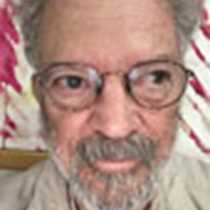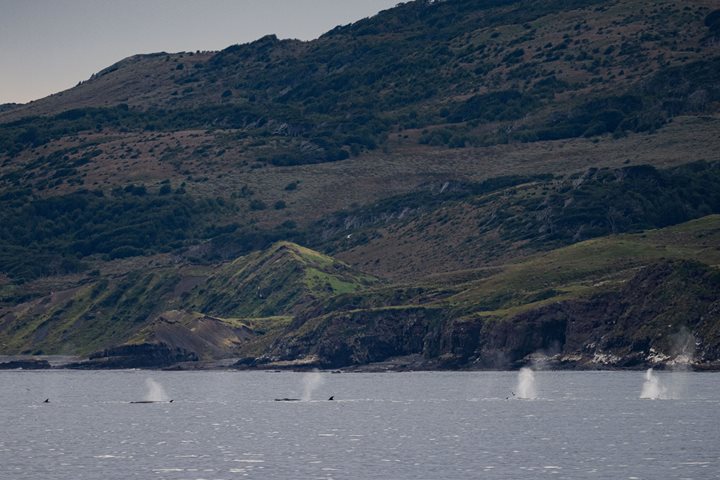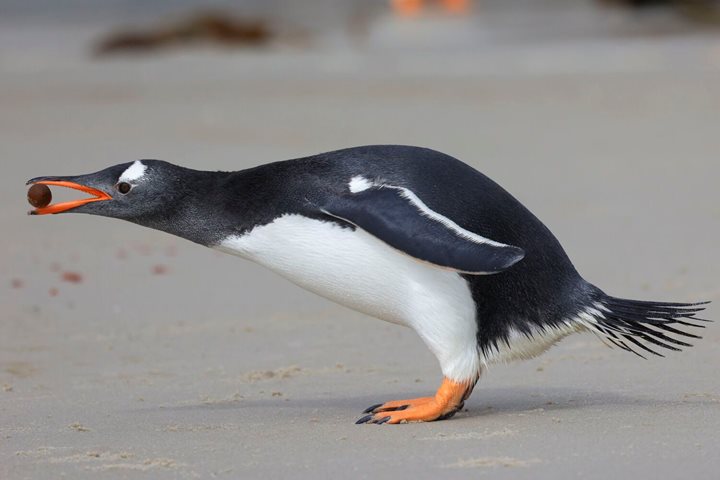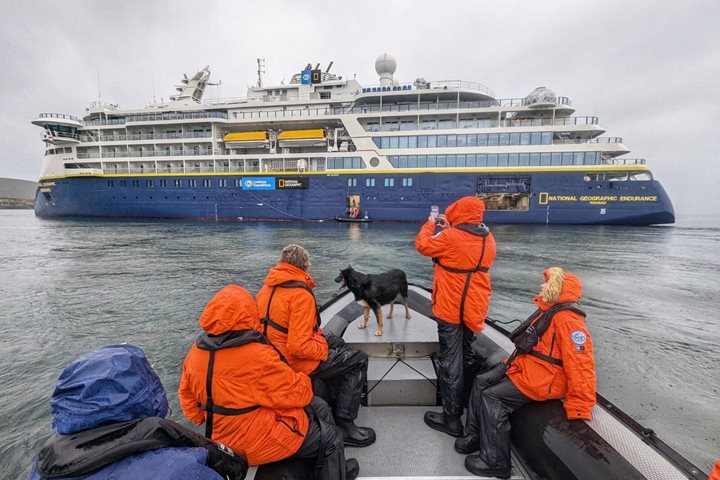It is morning, and it is all ocean to the edge of the horizon and all the way around the ship. Being here, it is somewhat easy to understand the fear some sailors felt, years ago, voyaging somewhere new. Navigation depended upon knowledge of the sun and stars, the color of the water, and the paths of the birds. There are birds all around: albatrosses and petrels and various other kinds, but they are following us, not leading us. Where we go, they go, until they don’t.
It is much easier now with GPS. I can even follow the ship’s progress on my phone. I can call up an app to show me the wind and the waves right now, and what they will be in six hours. We can make good guesses for some days ahead. But this does not make the world any smaller. Safer and more predictable, yes…but not smaller. We are pretty sure when we will arrive, and arrangements have already been made for docking at Stanley in the Falkland Islands, but we do not zip from location to location. We are traveling at about 15 miles per hour. We feel the distance, we know it is far. This is the voyage on the way to the destination. The time spent is important, it gives perspective.
Today we will eat, talk, perhaps exercise, eat some more, listen to presentations, and certainly work on the images we have taken. We remember yesterday and anticipate tomorrow. Naturalist and historian Gerard is about to begin a presentation on the history of the Falkland Islands, with a bit of natural history as well. This is excellent background that lays the foundation for our next adventure. We will all get more out of the next few days with this beginning. And so it is with all of the presentations. There are three today. But it is not all work and diligence. We change the clock tonight, and we gain an hour. I will take that hour and sleep with it, all the better for tomorrow!
IMAGE: Historian and naturalist Gerard presenting on the Falkland Islands. Photo by Dennis Cornejo







